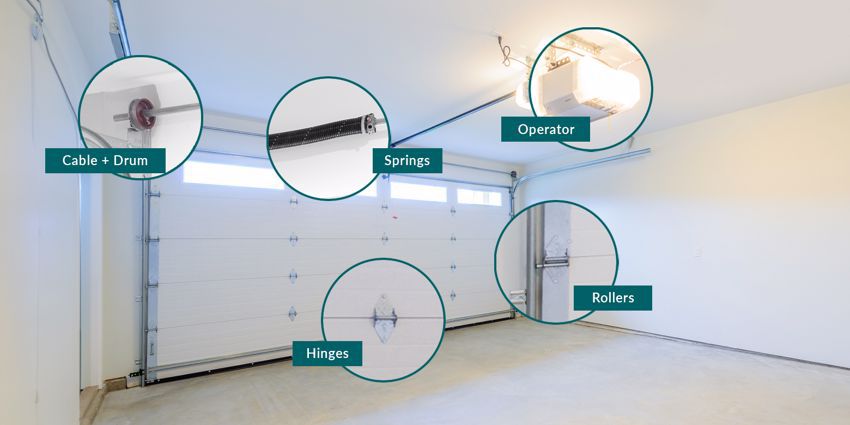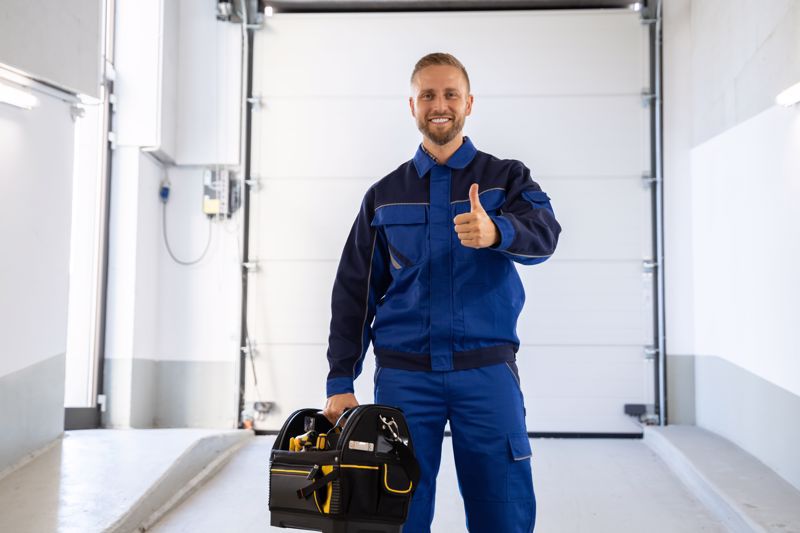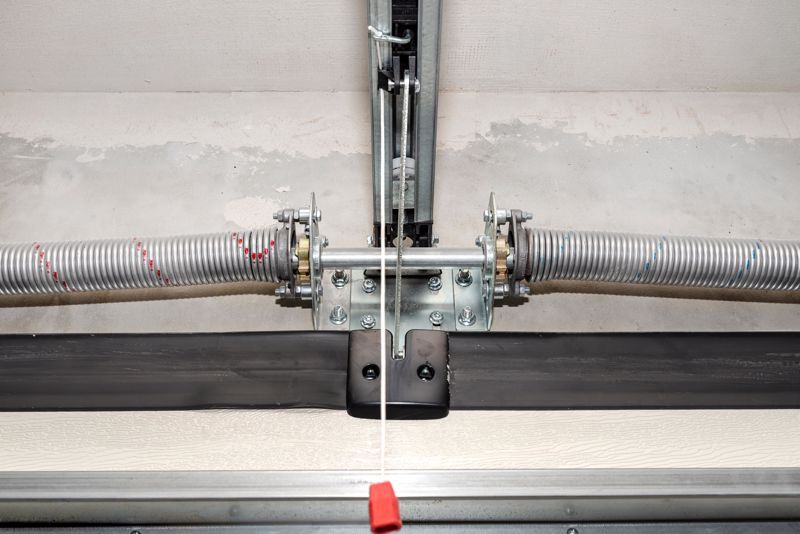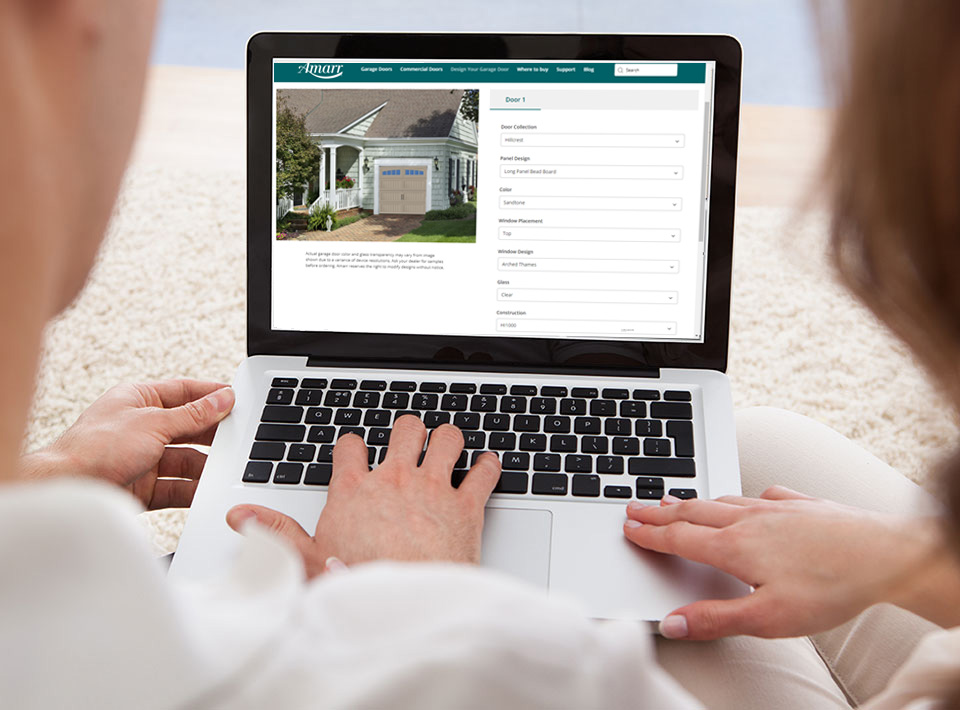Garage Door Troubleshooting: Identify and Fix Common Issues
- Aug 14, 2024
- Design Inspiration
- 6 minute read

Garage doors are subject to wear and tear — just like any other frequently used object in or around your home. The challenge is that they can be tricky to diagnose and fix, especially if you're unsure what to look for.
Thankfully, common garage door problems aren't so difficult to identify — since they'll likely result in obvious symptoms like excessive noise or failure to operate.
In this blog, we'll discuss how to determine whether your garage door has a problem and how you can fix it. That said, please keep in mind that garage doors are very dangerous. Their springs are under a lot of pressure and can cause serious injury if you don't know how to handle them. Any extensive or structural repairs should be completed by a trained technician only.

If your garage door is causing you trouble, seek a professional's help before trying to fix yourself!
Residential Garage Doors: How Do They Work?
A common residential garage door, in the simplest terms, typically operates using a system of mechanical components, door springs, and an electric opener. To better understand the ins and outs of these large doors, we can break the system down into individual components:
- Door panels: The door itself is usually made up of several panels hinged together, allowing it to bend as it moves along the tracks.
- Tracks: The door moves along metal tracks on either side of the garage opening. These tracks guide the door up and down.
- Door springs: Located above and usually on either side of the door, door springs provide lifting force.
- Cables and pulleys: These are connected to the springs and help distribute the force needed to lift the door.
- Rollers: Small wheels that sit in the garage door track and allow it to move smoothly from an open to a closed position or vice versa.
- Garage door motor/opener: An electric motor typically mounted on the ceiling. It has a drive mechanism (chain, belt or screw) that connects to the door and moves it along the tracks.
- Remote control and wall switch: The remote control allows you to open and close the door from outside the garage. A wall switch inside the garage also operates the door.
Common Garage Door Issues and How To Fix Them With the Right Tools
Now that you are familiarized with the working components of a garage door you can better troubleshoot any issues you may be experiencing. This list will highlight problems that can occur but of course, you should always leave any major fixes to the professionals to avoid further damage to the doors and to ensure your safety.
1. The Door Won't Open or Close
Oftentimes, a garage door that won't open or close at all has to do with the power supply or the garage door opener itself. Here's what to check if you have this problem:
- Check the power supply: Ensure the garage door motor is plugged in and the circuit breaker is not tripped.
- Replace remote batteries: If the remote control is not working, try replacing the batteries.
- Reset the opener: Sometimes, simply resetting the opener can fix this common problem. Refer to the manufacturer's instructions for the reset procedure.
2. The Door Reverses Before or After Hitting the Floor
If you have trouble with premature or late reversal, try adjusting the opener's limiter settings. Almost every garage door opener has limit settings that control how far the door travels before it stops. These can typically be adjusted manually to ensure the door stops correctly. Check the manual for the proper steps for your garage door system.
3. The Door Won't Stay Open Or Won't Fully Close
Like limiter settings, most openers also have force settings that determine the force required to lift or lower the door. If your garage door won't stay open (i.e., closes unexpectedly) or has trouble closing (i.e., reverses too early), consult your manual to adjust the force settings properly. While every garage door opener model varies, it's usually as easy as turning a dial on the motor.
4. Noisy Operation
Sometimes, excessive noise is caused by something as simple as a loose screw or unlubed tracks. Here are a couple of tricks to try if your door is making too much noise:
- Lubricate moving parts: Apply a silicone-based lubricant to rollers, hinges, tracks and springs to reduce noise and ensure smooth operation. If applying to springs, be mindful of where you're putting your fingers!
- Tighten loose hardware: Check for and tighten any loose bolts, nuts, or screws.
Anything outside of these troubleshooting tasks should be addressed by a trusted garage door dealer or technician. Regular garage door maintenance can help keep your door in good shape; however, the nature of mechanical parts means that every once in a while, you may run into a garage door problem that can't easily be fixed without the help of a professional.

Garage door springs hold a lot of tension and can cause serious injury. If you suspect a problem with your springs, call a professional for help.
Issues Homeowners Should NOT Attempt To Fix Themselves (Dangerous or Complex)
With those quick fixes in mind, there are even more garage door system repairs that you should always leave to a professional technician — either because they're too dangerous to perform on your own or require specialized knowledge of garage door installation. Those items are:
- Broken garage door springs.
- Damaged garage door rollers or cables.
- Track alignment or replacement.
- Garage door motor issues.
- Panel replacement.
- New insulated garage door installation.
If you believe you're dealing with any of the above, reach out to your local Amarr dealer and have the pros come out to take a look.
Garage Door Causing Problems? Here's How You Can Easily Get it Fixed
Now that you know common garage issues vs. more complex ones, you can best determine when you should and should not attempt to fix them yourself. If you need help in determining how to fix your garage door then contact a knowledgeable Amarr dealer today.

